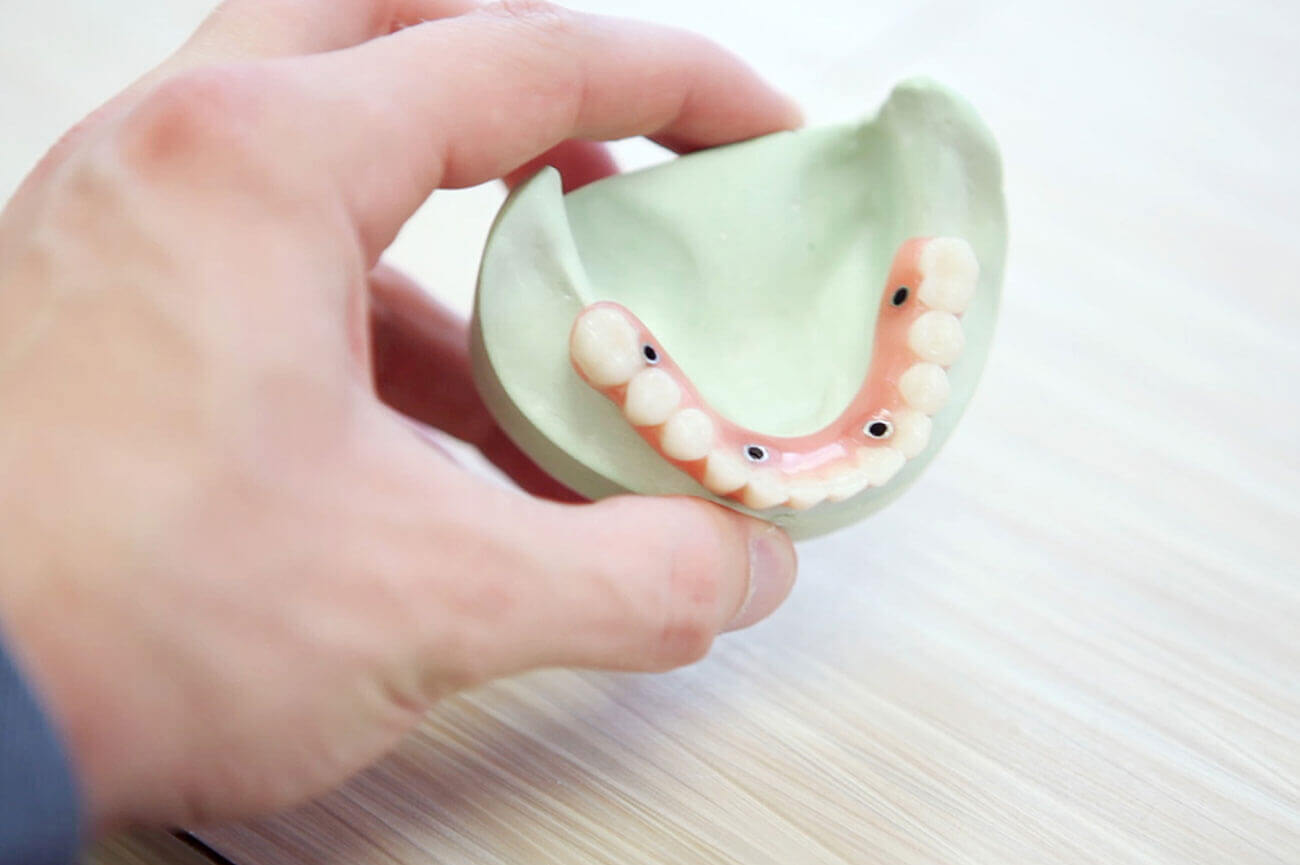Reasons to Choose Implant-Supported Dentures as an Effective Teeth Replacement Option
Nobody wants to lose a tooth, let alone several of them, but sometimes, due to circumstances out of your control, you may find yourself living with missing teeth.
If this happens, an implant-supported full denture can be a great solution to replace both your lost natural teeth and some of the roots and give you your smile back.
What Are Implant-Supported Dentures?
An implant-supported denture is exactly what it sounds like: a denture that is supported by dental implants. This means that rather than resting on your gums like a traditional denture and affixed using an adhesive, it is anchored by dental implants embedded in your bone.
Read More: CAN I GET A SINGLE DENTAL IMPLANT?
How Does it Work?
There are two types of implant-supported dentures: bar-retained and ball-retained. With both types, your denture will have an acrylic base that looks like your natural gums and porcelain or acrylic teeth.
Bar Retained Dentures
Bar retained dentures have a thin metal bar that follows the curve of your jaw. This bar will be attached to the implants in your jawbone. Clips or other types of attachments will be fitted to the bar, denture or both. The denture will then fit over the bar and the attachments will help to clip it into place.
Ball Retained Dentures
Also known as stud-attachment dentures, with ball retained dentures, each implant in the jawbone holds a ball-shaped metal attachment that fits together with another attachment on the denture.
The Implant Process
After your initial consultation where you and your dentist decided to go with an implant-supported denture, the first step will be for you to undergo a surgery where the implants will be placed in your jaw. These look similar to screws, or small metal cylinders.
After the implants are in place, there will be a waiting period before you can move onto the next step. You will have to wait three to four months if the implants are in your lower jaw, and five to six months if placed in your upper jaw.
During this time, the implants and the bone will bond together to provide an anchor for your future artificial teeth.
Read More: DEALING WITH DENTAL ANXIETY
Your dentist can provide you with a temporary tooth replacement option that can be worn over the implant site for the duration of this process.
Once the implants have fused with your bone, your dentist will determine whether the implant is ready for the next surgery where the implants will be exposed.
If ready, a healing cap – a round piece of metal that keeps the gums away from the implant head – will be placed on the head of each implant after it is exposed to help the gum tissue heal correctly. This will be in place for 10 to 14 days.
At the end of the 10 to 14 days, your dentist will replace the healing caps with regular abutments.
Your dentist will also need to make an impression of your gum tissue and abutments to create a working model that will be used to form the denture framework and teeth.
By around 5 to 7 months after your first surgery, a metal bar will be placed on the abutments and you will be able to try on your new denture frameworks to see how it fits.
After this, the artificial teeth will be placed on the framework in wax temporarily. If everything looks good, the teeth will then be permanently fitted in the denture framework. Depending on which type of implant-supported denture you choose, either the ball or bar attachments will be secured at this point in time.
Another visit to your dentist will be required in order for the completed denture to be inserted.
Shortly after the denture is inserted, your ability to chew and speak will improve, and confidence in your smile will be restored.
Benefits of Implant-Supported Dentures
Compared to other teeth replacement options, dental implants have the most advantages for many people with missing teeth.
Not only do implant-supported dentures look and function just like regular, natural teeth, but they are more comfortable and stable than regular dentures, are designed to be long-lasting, and allow you to maintain your regular biting and chewing ability.
This option is also often more aesthetic and easier to maintain long-term.
And because implants replace some of your tooth roots, your bone will be better preserved than with conventional dentures.
How Long Do Implant-Supported Dentures Last?
While the dental implants supporting your denture are permanent and can last you a lifetime, your actual denture will likely need replacing every 5 to 10 years, or even sooner depending on how well you take care of them.
And as your dentures experience wear and tear and jawbone and mouth change shape over time, your dentures can become ill-fitting. Therefore, it’s important to continue paying regular visits to the dentist for checkups.
Implant-Supported Dentures Vs. Traditional Dentures
Conventional dentures are easily removable and can be cleaned outside of the mouth. However, since they are supported by your gums and the underlying bone structure, this can result in them rubbing against your gums, causing soreness and pain.
Despite this, many people feel that conventional dentures are the best option for replacing missing teeth, however, there are several factors affecting performance that you should consider.
Conventional dentures must be held in place by a dental adhesive. This can be messy and usually needs to be re-applied throughout the day.
And without anything to hold them firmly in place, it can also be difficult to eat and chew with conventional dentures.
Another disadvantage is that conventional dentures will not prevent bone loss due to missing teeth, as the bones in your jaw will weaken and change shape over time.
As a result, you will likely need to have your dentures re-adjusted or replaced over time to maintain a good fit.
But with an implant-supported denture, the denture does not rest on the gums and is fixed on implants embedded in your bone.
And unlike traditional dentures which must be removed at night and for cleaning, only your dentist will be able to remove an implant-supported denture. This means that it will stay in your mouth permanently unless removed by a dentist for cleaning or examination.
Read More: THE INS AND OUTS OF DIRECT INSURANCE BILLING
While getting surgery may not seem ideal compared to the ease of traditional dentures, the benefits of implant-supported dentures will far outweigh any initial discomfort long-term
But, like any other significant dental procedure, it’s important to do your research and thoroughly discuss the pros and cons of all your options with your dentist before jumping in.

